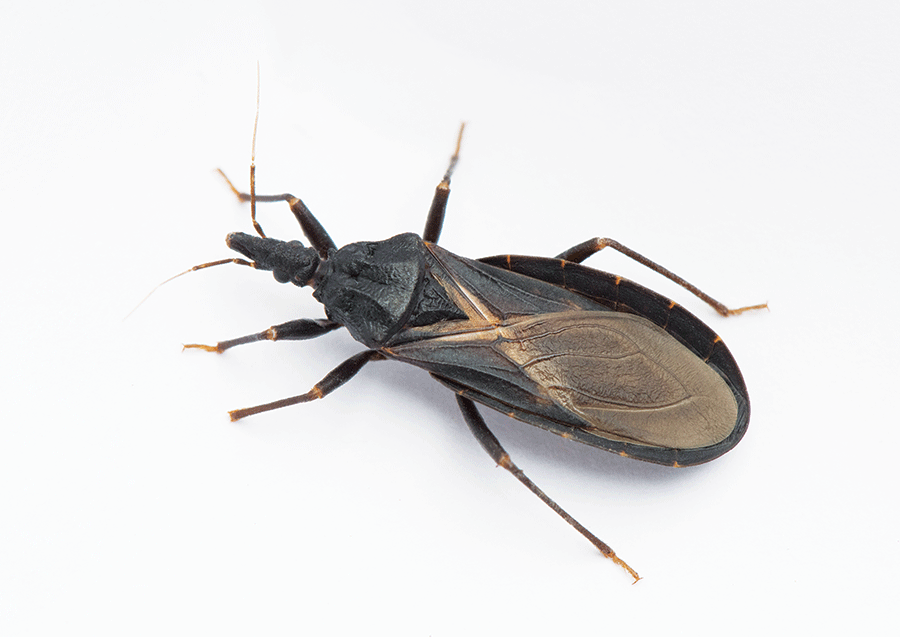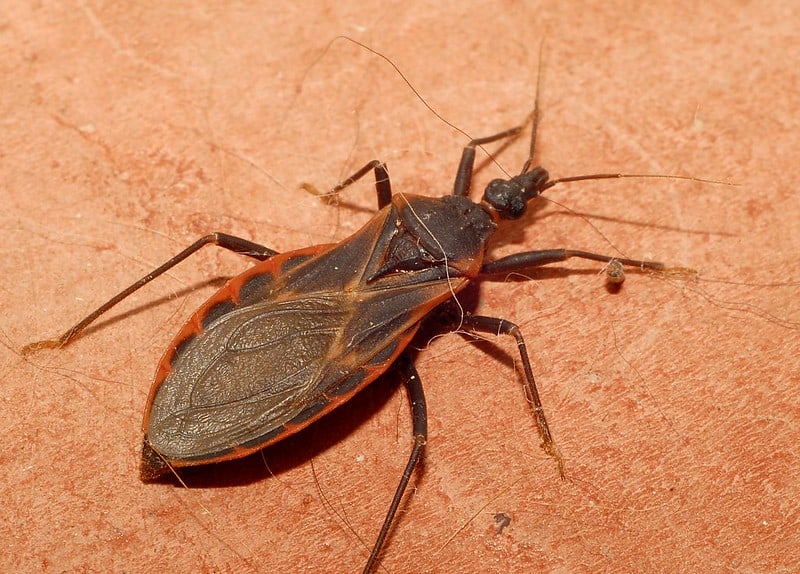Imagine waking up with an itchy red bump near your mouth. You might dismiss it as a simple bug bite, but in the following days, you start feeling unwell—fever, nausea, and fatigue set in. You visit the doctor without mentioning the bite, but they notice the swelling and connect the dots. Turns out, this could be the mark of an assassin bug, a pest far more dangerous than most realize.
The Dangers of an Assassin Bug Bite
Assassin bugs are known carriers of Chagas disease, a serious condition that can lead to heart and organ complications. Thankfully, not every bite results in infection, but statistics suggest over 60% of these insects carry the disease. If bitten, immediate symptoms often include intense pain and swelling.
To address a bite:
- Wash the area thoroughly.
- Use antiseptics and apply calamine lotion or corticosteroids for swelling.
- Over-the-counter pain relief, such as ibuprofen, can help manage discomfort.
- Seek medical attention for severe reactions like hives or breathing issues.
This experience serves as a reminder to take preventive measures against pests.

What Are Assassin Bugs?
Also referred to as “kissing bugs,” these pests are blood-feeding insects found across much of the southern United States, particularly in Texas and surrounding regions. They often reside in wooded areas but move closer to homes during warmer months in search of mates and new nesting spots. Lights attract them to houses, where they infiltrate and hide in dark, cool areas.

Recognizing Assassin Bugs
Known scientifically as triatomine bugs, these insects live between 4 and 24 months depending on their environment. Adult assassin bugs are typically ½ to 1 inch long, dark brown or black, sometimes with red markings on their backs. Both nymphs and adults are capable of feeding on blood.
Due to their nocturnal habits, assassin bugs are hard to spot without actively searching.
Where to Look for Assassin Bugs
Assassin bugs prefer hiding close to their food sources. To locate them, inspect:
- Indoors: Mattresses, picture frames, furniture, storage boxes, and hanging clothes.
- Outdoors: Piles of leaves, firewood, stones, or tiles near the house.
Preventing Assassin Bugs
To keep these pests away, use the following strategies:
- Remove debris like leaves and old furniture from your property.
- Store food and firewood properly.
- Seal cracks in walls and gaps under doors.
- Install window and door screens.
- Use bug-safe yellow light bulbs outside.
For thorough protection, consider professional pest control services.
Professional Pest Solutions
Enlisting the help of pest control experts ensures effective removal and prevention. Specialists can identify vulnerabilities in your home and provide tailored solutions to keep pests at bay.
Don’t take chances with your health or safety. Contact a trusted pest control service for peace of mind.
Assassin Bug Bite Treatment and Prevention: What You Need to Know

How to Treat an Assassin Bug Bite
If you suspect you’ve been bitten by an assassin bug, it’s important to take immediate action to minimize the risk of infection and further complications. Here are the essential steps to follow:
- Clean the Affected Area
- Wash the bite with soap and water to reduce the risk of bacterial infection.
- Apply an antiseptic solution such as hydrogen peroxide or rubbing alcohol.
- Soothe the Itching and Swelling
- Apply calamine lotion or a corticosteroid cream to alleviate itching and inflammation.
- Use cold compresses to reduce swelling and discomfort.
- Manage Pain
- Over-the-counter pain relievers like ibuprofen or acetaminophen can help manage pain and inflammation.
- Monitor for Symptoms
- Keep an eye on any signs of allergic reactions, such as severe swelling, difficulty breathing, or widespread redness. Seek immediate medical attention if these occur.
- Consult a Doctor
- If symptoms persist or worsen, consult a healthcare professional for further evaluation. In cases of suspected Chagas disease exposure, specialized testing and treatment may be required.
Long-Term Health Concerns
While not all assassin bug bites transmit Chagas disease, it’s crucial to be aware of potential long-term effects. Chagas disease can have a dormant period lasting years, eventually leading to serious heart and digestive complications if left untreated. Early detection and treatment are key to preventing complications.

Preventing Assassin Bug Infestation
Taking proactive measures to prevent assassin bugs from entering your home can significantly reduce the risk of bites. Follow these steps to keep your living space bug-free:
- Seal Entry Points: Inspect and seal cracks in walls, doors, and windows to prevent bugs from entering.
- Maintain a Clean Environment: Remove clutter, leaves, and debris around your home, as they provide hiding spots for bugs.
- Use Bug Screens: Install protective screens on windows and doors to keep insects out.
- Reduce Outdoor Lighting: Since bugs are attracted to lights, opt for yellow “bug-safe” bulbs.
- Regular Inspections: Periodically check areas where bugs are known to hide, such as bedding, furniture, and storage areas.

When to Seek Professional Help
If you’ve noticed an increase in assassin bug sightings around your property, it may be time to call pest control professionals. They can:
- Conduct thorough inspections.
- Apply targeted treatments to eliminate infestations.
- Provide advice on long-term prevention strategies.
Conclusion
Assassin bugs may seem like a minor nuisance, but their potential to transmit dangerous diseases makes them a serious concern. By taking preventive measures and seeking timely treatment when bitten, you can protect yourself and your loved ones from health risks associated with these pests.

